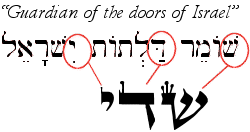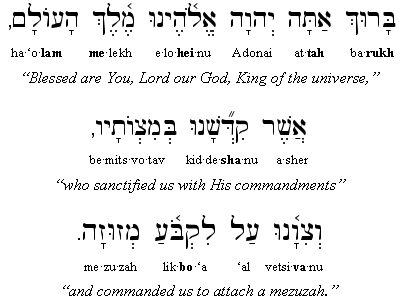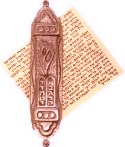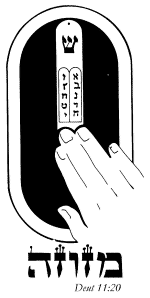|
The word mezuzah is used as a noun 18 times in the Scriptures, the same numerical value as the word for "alive" (i.e., chai: חי). Note that the gematria of the verse, "And you shall write them on the doorposts of your house, and on your gates" (Deut. 6:9) equals 2468, which is the same value found in the account of the final plague in Egypt, where it is written, "Thus says the LORD: 'About midnight I will go out in the midst of Egypt' (Exod. 11:4). Therefore the sages infer that just as the Israelites applied the blood of the lamb to the mezuzot of their homes at the time of their deliverance from Egypt, so we should affix mezuzot to the doors of our homes. As believers in the Messiah Yeshua, the mezuzah reminds us that we too are bought with a price, and that our homes are dedicated to God.
Many mezuzot are beautiful pieces of artwork and are often given as housewarming gifts. The letter Shin (שׁ) that often is inscribed on the outside of the mezuzah case stands for the Name of God: Shaddai (the "All Sufficient One"). The three letters of the word Shaddai (שׁדי) are said to be the initials taken from the phrase "Guardian of the doors of Israel" (i.e., shomer daltot yisrael: שׁוֹמֵר דַּלְתוֹת יִשְׂרָאֵל).
|







